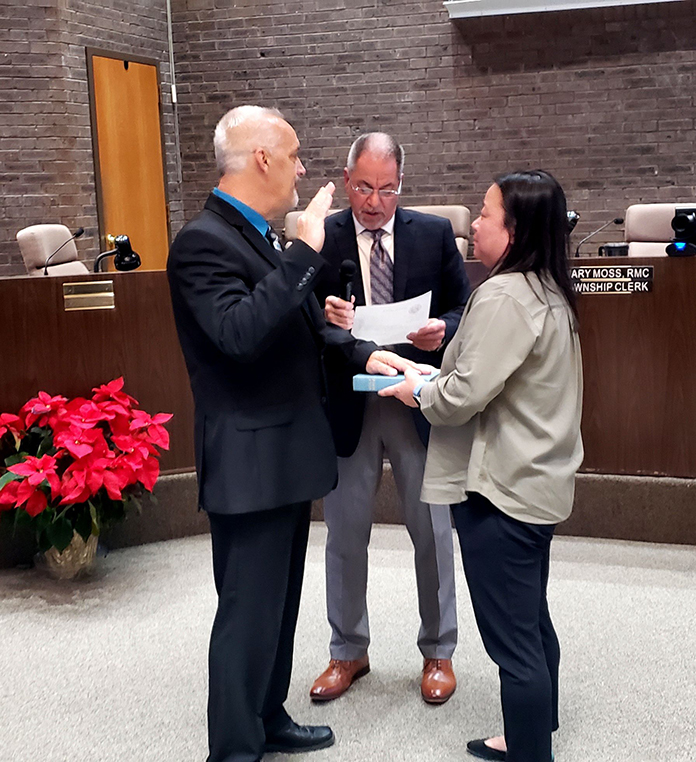BRICK – Parents of Brick Township School District students can now ‘opt-out’ their child from the controversial comprehensive health and physical education curriculum.
Over the past couple of months, the state’s new guidelines for sex education have been a major topic of conversation. The lengthy guidelines discuss little about sex education and instead aim towards sexuality and gender identity.
Despite the heavy concerns expressed over the new standards, school districts have control over how much detail they can include. The mandated curriculum was confirmed earlier this fall and school officials ensured the community that parents will have a choice.
“The Family Life parent guide has been uploaded to the Parent Portal for students in grades two, five and eight. Parents can review the guide and choose to electronically opt-out of the lessons that were added at each grade level,” Director of Curriculum Alyce Anderson said at a recent Board of Education meeting.
Brick Township School District is one of several other districts across the state that has offered an “opt-out” option. Some parents criticized the new curriculum, some saying it’s not age-appropriate to teach young children about sexuality and gender identity. Others were in favor of the new standards, stating it’s becoming progressive.
Brick parents can log into Parent Portal and will be presented with information on the topic. There, they can choose whether to opt their child out or not. Alert messages will ensure parents know the curriculum standards. Those students who are opted out will be given alternative work, officials said.
During the public comment portion of the meeting, Madeline Iannarone, who was recently elected as a new school board member, spoke up about the opt-out decision. She asked the board to consider having parents ‘opt-in’ instead as she stated that’s more important to parents.
“It’s mandated curriculum unless if you opt-out, so you can’t have an opt-in,” Board President Stephanie Wohlrab explained.
Anderson joined into the conversation and explained that legally, the district could only offer an opt-out option in order to comply with regulations. If this option wasn’t presented, then the parent(s) would have to take the initiative and talk to the district.
“A parent would have to write a letter to a principal… We wanted to remove that piece of it so parents could be fully informed,” Anderson said. “If parents don’t respond in the Parent Portal, our health and PE teachers will reach out.”
Anderson stated that at any time, parents can reach out with questions and what the lessons will be discussing. Parents can also ask for the lesson plans so they can preview it with their child.
New Sex Ed Standards
Standards undergo a revision process every five years and include a series of public hearings throughout the state. The new guidelines were actually adopted in June of 2020, then each district finalized their versions this year.
The Comprehensive Health and Physical Education guidelines encompass a great deal more than sex and gender. It is 66 pages. There are entire pages on fitness, and just a few sentences on gender identity, but that is what some parents are concerned about. Other topics include addiction, nutrition, and resolving conflicts.
Parents have expressed concerns that the state’s rules are causing students to be “indoctrinated” into lifestyles of which the parents wouldn’t approve, or they say the parents should be the ones having these conversations with the children.
Whenever parents bring up these points, school administrators throughout Ocean County have continually said that while the state created the guidelines, each district was able to craft their own lessons. There is still an element of home rule.
According to the state document, “Today’s students are continually bombarded with physical, mental, and social influences that affect not only learning in school, but also the lifelong health of the citizens that schools are preparing for graduation. To that end, the New Jersey Student Learning Standards – Comprehensive Health and Physical Education (NJSLS-CHPE) were revised to address the need for students to gain knowledge and skills in caring for themselves, interact effectively with others, and analyze the impact of choices and consequences.”
One philosophy of education is that teachers shouldn’t just teach facts, but should create lifetime learners – something that lasts after graduation. One of the goals of the curriculum is to create healthy exercise and nutrition habits for the rest of their lives.
There is language about “health literacy,” and that if someone doesn’t know anything about health issues, then they won’t know where to turn if something is wrong. They might not even know if something is wrong. Thus, there are topics for older kids about consent, sexting, and sexual assault.
The lessons are split across age levels. The youngest is “by the end of 2nd grade.” The other steps are “end of 5th,” “end of 8th,” and “end of 12th.”
For example, the core idea for sexual health by the end of 2nd grade is “Every individual has unique skills and qualities, which can include the activities they enjoy such as how they may dress, their mannerisms, things they like to do.” By 5th grade, that has evolved into “All individuals should feel welcome and included regardless of their gender, gender expression, or sexual orientation.” The points under that, for end of 5th grade, are: “Describe gender-role stereotypes and their potential impact on self and others; Differentiate between sexual orientation and gender identity; Demonstrate ways to promote dignity and respect for all people (e.g. sexual orientation, gender identity and expression, race, ethnicity, socio-economic status, differing ability, immigration status, family configuration).”
One point of contention for some parents is that by the end of 8th grade, one of the guidelines is “Define vaginal, oral, and anal sex.”
The state’s guidance is based on best practices from throughout the nation. Educators have said that creating a place where schools welcome everyone regardless of gender identity will reduce suicide, drug abuse, and other harmful actions of teens who feel they don’t belong. In this case, it’s literally life or death for kids going through tough times.
Children are being asked to “respect and accept differences of an individual’s race, religion, gender identity, gender expression, ethnicity, disability, socioeconomic background, and perspectives of health-related decisions.”
The state requires that schools include the contributions of African Americans, people with disabilities, as well as lesbian, gay, bisexual, and transgender people “in an appropriate place.”
While politically-motivated media reports have targeted model lesson plans prepared by third parties, these were often extreme examples. The State of New Jersey does not endorse any of them.
The state’s guidelines can be found here:nj.gov/education/cccs/2020/2020%20NJSLS-CHPE.pdf
Chris Lundy contributed to this article.
The post Parents Can ‘Opt-Out’ Their Child From Sex-Ed Curriculum appeared first on Jersey Shore Online.





